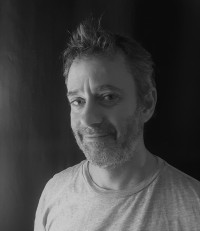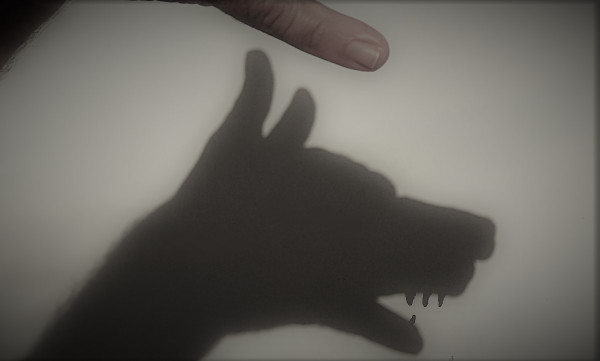Love to your Antagonist
Archetypal Antagonism in Documentary Film and Fiction
by Amos Ponger of Mrs Wulf Story Consulting
Stories are intricate mechanisms
Documentary film is a powerful genre that draws much of its energy from the material of real-life action. Consuming documentaries, we as spectators often ignore the fact that documentaries, like fiction, are a constructed clockwork of storytelling. Since the digital revolution, the amounts of raw material for documentary productions have probably grown tenfold, shifting much of the dramaturgical construction work to the editing room. Dealing with hundreds of hours of material you may say that 90 percent of the editing work in documentary film is “finding the story“, discovering what your story is about.
One issue editors often encounter while working on the narratives of documentary films is that many directors tend to neglect the importance of understanding and designing their antagonist or their antagonistic powers, the Antagonism.
Sure, you love your protagonists. You identify with their strivings and journeys, and you as a storyteller have probably given a lot of thought to making them appealing to your audience, giving the audience someone they can identify with. Your protagonists may be an inspiration to you, or you may yourself strongly identify with them, you may share or appreciate some of their characteristics and values.
At the same time you have probably not given your Antagonist/m the same attention. Have you?
Whether your antagonist is a specific character, a group of people, a value or just „the system“, consider that by having an unclear relation to your antagonist, you as a storyteller are probably going to inflict a vagueness to the relationship of your audience with your antagonist – and the story as a whole. Furthermore, you might miss the opportunity of creating a truthful and compelling protagonist – as well as an honest theme. By not knowing your antagonist and his motivations as a character you risk cliché and might miss creating a theme for your audience and a revelation for the protagonist, the audience, and even yourself as storyteller.
Love your antagonist
I would like to encourage you to “make love” to your Antagonist as much as you “make love” to your protagonist (and maybe even more).
It is your job to know your Antagonist. Because he is key to understanding your protagonist – and yourself.
Many documentary filmmakers (and fiction writers) tend to see the Antagonistic powers as merely the obstacle protagonists have to „deal with“ or overcome in order to achieve their goals. If, for example, your protagonist is a journalist trying to expose the dubious relationships between the CEO of an oil firm drilling in an Alaskan reserve, corrupt local politicians, and an endangered species of bears, you, as a filmmaker and storyteller, might feel that the Antagonist’s role is to supply the obstacles she has to overcome in her search for truth. And that the journalist’s motives should be enough to drive the story’s „engine“ and create audience identification.
So, why is the essence of the Antagonistic power important, and why would „making love to your antagonist“ make sense?
Because ideally your Protagonistic and Antagonistic forces are two manifestations of the same principle. The same principle that is guiding you as a filmmaker, and as a human being telling a story.
Again, we all tend to forget that we have come into this life without a user’s manual, and struggle all our lives to find the right path. Humanity has tried since the dawn of history to create countless „user manuals“ – through laws of morality, religion, ideology, or in short, Narrative. Narrative, or story, has been mankind’s very economical and efficient evolutionary tactic to enable us to experience the experiences of others. Saving us the need to fight a tiger ourselves in order to learn how to avoid being eaten.
Storytelling, then, has evolved into a way of asking questions or dealing with conflicts inherent to a human life, and of enabling us to make the right decisions. In the foundations of every good story there is a clash, a conflict, a negotiation, a negation, a struggle between principles. A clash of world Philosophies.
Finding the honest truth of the story
Thousands of years later, you as a documentary filmmaker (or a fiction writer) have probably taken upon yourself the hardship of telling the story of the journalist and her struggle for truth against the oil firm because it exemplifies a collision of principles. If the journalist is your protagonist, these principles could be „Truth“ vs „The manipulation of truth“, „Justice“ vs „Greed“ or “seeing vs looking away.” We can call it also ‘theme’, or ‘what your story is really about’.
By telling the story of the compelling protagonist, you probably want to take a strong standpoint towards „Justice“ or „Truth“ or „seeing“ and want to distance yourself from „Manipulation of truth“ „Greed“ or „looking away“. But wouldn’t the honest truth be that all humans including yourself and your audience are subject to being greedy, and wanting to look away, and manipulate the truth sometimes?
Sure, you might find it easier identifying with someone like you, someone representing values that reassure you, and that flatter the comfort zone of your audience.
But you haven’t completely done your work as a storyteller until you have at least looked into the dark aspects of your protagonist and deeply understood the moral justification of your antagonist.
That might lead you to a better understanding of your own motivations, your drive, transformation, and the reason why you are telling this story. And it will help your audience to understand their own standpoint.
A very basic key principle in developing characters is that a character will always have and believe in the moral justification of their doings.
Does the CEO of the oil firm not think he is doing the right thing, and the journalist is wrong? Wouldn’t the journalist be a more truthful and honest character if she would have to fight the powerful temptations of greed herself? And thus meet the CEO in a common thematic field and force both of them to take a decision? And by that enable her to make a transformation?
Knowing what your story is about, understanding how your protagonist and antagonist are similar, seeing the story out of the perspective of your antagonist, and knowing your antagonist’s internal world, problems, goals and needs will force you to understand what the key difference between the protagonistic and antagonistic forces is. And as you go deeper into this and begin to love your antagonist, you might also find the difference between you and the antagonism.
© 2019 Amos Ponger
Go deeper into what your story is about. If you need help finding out what your story is about, what the connection is between your protagonist and antagonist, try a mini-consulting session.
Design your antagonist, hero and other major characters, and then your narrative in the Beemgee outlining tool. Sign up here:

Working for over 20 years as an award winning film editor and story consultant, Amos Ponger studied film science, cultural sciences, art history and multidisciplinary art sciences at The FU Berlin, Humboldt University Berlin and the Tel Aviv University. He has a Master’s degree from the Steve Tisch School of Film in the Tel Aviv University, worked as an editing teacher in two Israeli film academies, is senior advisor to our story development tool Beemgee.com, and recently co-founded the story consulting service Mrs Wulf.
Amongst Amos’ works are award-winning feature length documentary films and documentary series such as “Bil’in my Love” (Director Shai Polack, Wolgin Prize, Special Mention Rotterdam Festival, Ch8 / TV5 / Duch TV), “FreeFlow” (Director Ramy Katz, Other Israel Award, Grand Prix Sarajevo), “Brown Babies – Germany’s Lost Children” (Director Michaela Kirst, RIAS Award, Arte / BR / WDR), “2 or 3 things I know about him” (Director Malte Ludin, Arte, Berlinale Panorama), “Mehubarim” (“Connected”, Israeli Television Academy Award), award winning video art films “Mother Economy” and “Counterlight” (Director Maya Zack).
Portrait photo by Valerie Schneider


